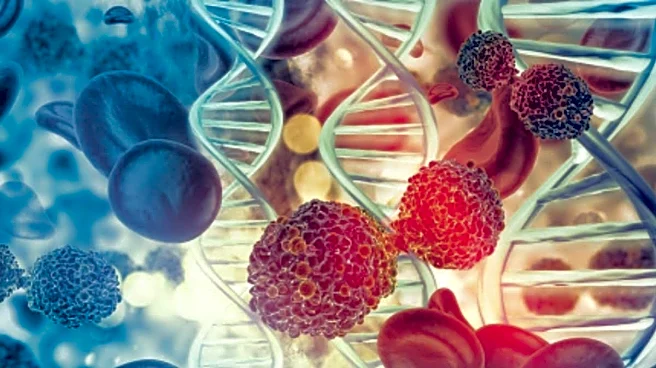Across the world, cancers once associated with older age are increasingly appearing in people in their 20s, 30s, and early 40s. Thyroid, breast, colorectal, kidney, and endometrial cancers are rising fastest, and colorectal cancer in particular has shown a sharp spike in adults under 50. India is witnessing the same unsettling trend.
Young software engineers, media professionals, first-time parents, or consultants are being diagnosed with cancers once seen only after midlife. Many do not smoke or drink heavily. Most have no genetic history. What they share are modern risk factors — long work hours, rising obesity, stress, disrupted sleep, heavily processed diets, and very low preventive screening.
Young Adults Are Not As Safe As They Think
A cancer
diagnosis at 35 or 40 still sounds unusual to many Indians, which is why early symptoms often go unnoticed. A 33-year-old Delhi professional ignored acidity and bowel changes for months before finally visiting a doctor. His diagnosis — early-stage colorectal cancer — was a shock, but not to his oncologist. Similar cases in the 30-40 age group are appearing more frequently in city hospitals.
The misconception that “cancer happens only after 50” causes younger adults to overlook persistent abdominal discomfort, breast lumps, unexplained fatigue, abnormal bleeding, or changes in bowel habits. These early signs are often blamed on stress, poor sleep, junk food, or hormonal fluctuations. By the time symptoms are alarming enough to seek help, the disease has usually progressed.
Lifestyle Shifts Are Triggering New Cancer Patterns
Obesity is now a well-established risk factor for several cancers, but the story does not end with weight. India’s rapid dietary and lifestyle transition has created an environment where cancer risk rises silently long before symptoms appear.
The Indian diet of two decades ago — rich in dal, vegetables, fermented foods, whole grains, and home-cooked meals — has given way to fast food, aerated drinks, packaged snacks, heavy late-night dinners, and low-fibre meals. Young Indians often eat outside, snack while working on laptops, and rely on quick delivery meals instead of cooking.
This shift fuels chronic inflammation, alters insulin response, disrupts hormones, and impacts gut health — a combination strongly linked to cancer risk in the young.
Another emerging explanation involves the gut microbiome. Studies globally suggest that a disrupted gut ecosystem, caused by processed diets, stress, irregular sleep, and frequent antibiotic use, may raise the risk of early cancers. Indian doctors increasingly report that young cancer patients often have a history of antibiotic overuse, even for minor infections. This damages good gut bacteria and weakens immune defences that usually suppress abnormal cell growth.
India’s Screening Gap Is Making The Problem Worse
Most screening guidelines in the country were designed decades ago, based on the assumption that cancer largely affects older adults. As a result, screening for diseases like breast or colorectal cancer often begins too late for today’s risk patterns.
Colorectal cancer screening in many countries now starts at 45. In India, most people do not even consider screening until they experience severe symptoms, which can result in late-stage diagnosis. Breast cancer screening for Indian women typically begins in the early 40s, but the rise in breast cancer among women in their early 30s suggests that guidelines may need review.
Younger adults hesitate to undergo tests for multiple reasons. Many feel that cancer is too distant a risk to justify the cost or inconvenience of screening. Others avoid hospitals due to packed schedules or fear discovering something serious. Many lack insurance coverage that supports preventive tests.
The result is a widening gap between the age at which cancer risk is rising and the age at which most Indians access screening.
Solutions include workplace wellness programmes such as early cancer checks, insurance plans offering screening benefits, app-based reminders, and public campaigns tailored to millennials and Gen Z. But adoption remains uneven.
The Economic Shock Of Cancer In The 30s And 40s
A cancer diagnosis in midlife does not just affect health. It disrupts careers, family planning, finances, and mental well-being. Many young adults are still paying EMIs, supporting aging parents, and raising toddlers when they are diagnosed. Long treatment cycles, aggressive chemotherapy, and repeated hospital visits interfere with work and savings at a stage when financial stability is still fragile.
Survivors in this age group face challenges that differ from older patients — managing fertility concerns, coping with career interruptions, balancing recovery with child-care, rebuilding confidence, and handling the emotional toll of a long medical journey.
Employers also feel the impact. India’s entire services economy depends on its young workforce. Rising chronic illness in this group can reduce productivity, increase healthcare costs, and strain workplace resources. Some global companies now offer cancer screening and mental-health programmes for younger employees, but Indian workplaces are only beginning to move in that direction.
What Millennials And Gen Z Can Do To Lower Their Risk
Cancer prevention messaging often sounds overly generic — “eat healthy, exercise more”. But for young Indians facing rising cancer risk, the strategy needs to be more practical and rooted in everyday life.
One effective step is restoring fibre to the diet. Indian kitchens already have natural fibre sources such as vegetables, dals, chickpeas, millets, whole grains, and fruits. A fibre-rich plate helps stabilise insulin, supports the gut microbiome, and reduces inflammation.
Late-night meals, a common urban habit, can also be harmful. Eating heavily past 9:30 or 10 pm disrupts metabolism and increases insulin spikes. Shifting dinner earlier can significantly reduce long-term metabolic stress.
Reducing sugary drinks and highly processed snacks is another crucial step. Packaged foods and bakery items contribute to hormonal imbalance and weight gain, particularly around the abdomen — a key risk factor for several cancers.
Consistent physical movement matters too. Even 30-45 minutes of brisk walking daily can lower colon, breast, and endometrial cancer risk. Sleep, often compromised by late-night work or OTT watching, is equally important. Chronic sleep deprivation weakens immunity and increases chronic inflammation.
Understanding family history is essential. Even one first-degree relative with cancer may justify early screening. And any persistent symptom — blood in stool, breast changes, unexplained fatigue, abnormal bleeding — warrants immediate attention.
Urban Vs Rural: Where Is The Rise Happening Faster?
India’s early-onset cancer surge is currently most visible in urban and semi-urban regions. Cities drive obesity rates higher, create more sedentary jobs, expose workers to greater stress, and offer easy access to processed foods. Yet obesity is rising in rural areas too, driven by packaged foods and reduced physical labour. As rural obesity increases, younger cancers may follow.
India’s health system must prepare for this shift now, rather than after the trend becomes widespread.
Is India Ready For Younger Cancer Patients?
India’s oncology resources are already stretched by rising diabetes, heart disease, and late-stage cancers. A parallel rise in cancers under 40 introduces a new challenge. Younger patients need fertility-preserving treatments, long-term psychological support, and clearer insurance coverage, but many hospitals and insurance plans are not fully equipped for this demographic.
Public messaging has also not caught up. Most health campaigns still target middle-aged audiences, reinforcing the belief that younger adults are at minimal risk. Updated guidelines, earlier screening protocols, and a public-health strategy tailored to India’s modern lifestyle are urgently needed.
What To Conclude?
The rise of obesity-linked cancers in India’s younger population signals a deeper shift in the country’s health landscape. This trend is not driven by genetics. It is driven by rapid lifestyle change — heavily processed diets, disrupted sleep cycles, gut imbalance, chronic stress, and a medical system that still associates cancer with old age.
The good news is that younger adults have the most to gain from prevention. With small but consistent changes, many risk factors can be reversed long before they become dangerous. For millennials and Gen Z, cancer risk is no longer something to think about “later.” It is something worth paying attention to now.



/images/ppid_59c68470-image-177100504592948655.webp)

/images/ppid_a911dc6a-image-177101053501199609.webp)

/images/ppid_59c68470-image-177101003680064644.webp)




/images/ppid_59c68470-image-177100753350744656.webp)
/images/ppid_a911dc6a-image-17710070301901476.webp)
/images/ppid_a911dc6a-image-177100572282276854.webp)